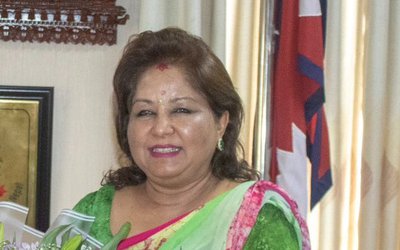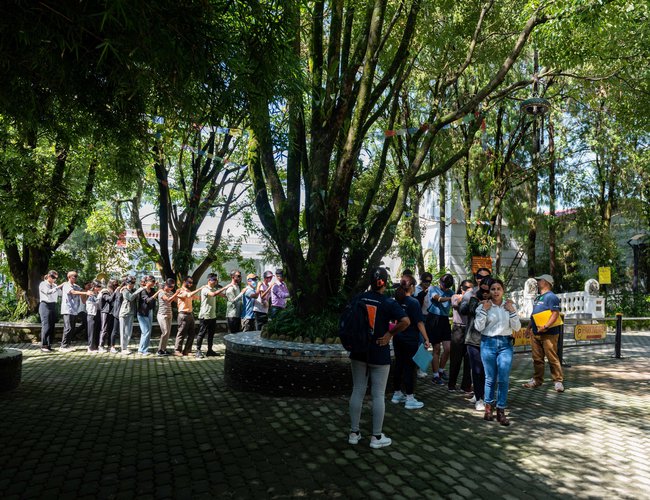
“Happy week of Youth! For the EU in Nepal, it started with the launch of our EU Youth Sounding Board, and there’s no better way to start a collaboration than moving together! Looking forward to working with this talented group of young Nepalis!” tweeted European in Nepal on August 8.
As Nepal is celebrating International Youth Day, three days workshop of the Youth Sounding Board recently concluded in Kathmandu exercising various methods to show the way to increase the engagement of youth. Thus, it was a happy week for Nepalese youth who joined a program to start a new journey with a mission to empower and engage youth in Nepal’s local government process.
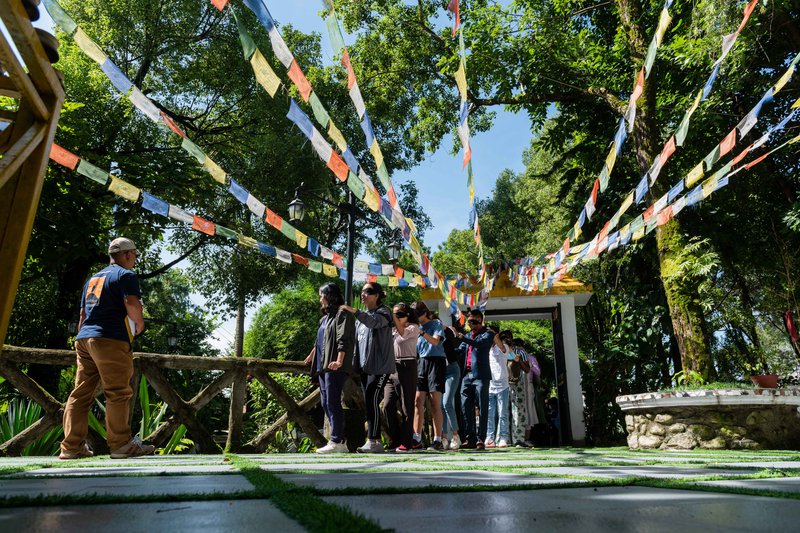
Around 21 members of the Youth Sounding Board from different parts of Nepal attended a three-day program of learning, sharing and networking exercises.
“It was a wonderful workshop that equipped my knowledge, skills and ideas to engage youth at local government level. “We acquired much-needed skills for networking, grouping and the entire process of governance,” said Aagya Shrestha, a member of YSB.
“One of the objectives of the interaction among Youth Sounding Board Members was for the promotion of youth Engagement in Local Governance Process,” said Aagya Pokharel, Project Coordinator Helvetas Nepal.
“Its key activities will be the formation of youth panels, capacity development constitutionals rights, federalism, Electoral literacy, RTI compliances, Local Media Mobilization, Social Accountability Practices, Technical Support in digitalization, Youth Sounding Board Financial Support to third parties and Palika Internship opportunities,” said Pokharel.
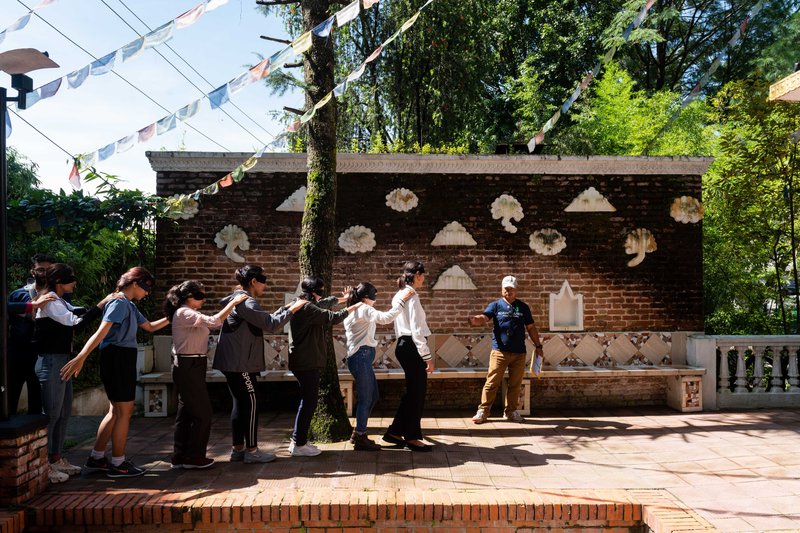
“The board provides opportunities like learning platform and gaining experiences, Engagement in the local government process and familiar about the procedures, aware about constitutional rights, Acts, Youth Policies nationally and globally, governance acts, electoral rights, e-governance tools, social accountability Practices and participation in influencing policy and advocacy initiatives.”
Helvetas Program
Like other organizations, Helevetas is implementing the Promotion of Youth Engagement in Local Governance Process (PROYEL). Funded by the European Union and implemented by Helvetas, PROYEL is supporting youth programs in Madhesh and Karnali provinces
According to Helvetas, promoting youth engagement and leadership will help to achieve its development goal of decent lives for all. To overcome all sectoral issues, Helvetas encourages the engagement of young people in local government affairs strengthening federalization in Nepal. For this, Youth Sounding Board is a key.
“Helvetas has implemented an action to promote youth engagement in local government processes in support of the European Union. It seeks to address the very gaps in youth engagement and leadership by working at 3 levels; creating inclusive spaces for meaningful dialogue between government and youths, capacity engagement of youths and supporting local government to develop institutional mechanisms to address intersectional exclusion and other issues. For meaningful dialogue between government and youths, youth structures such as youth panel at the local level and Youth Sounding Board at the National level have been formed. While youth panels engage with local government, YSB engages at the national level, also contributing to the design of youth-related strategies of the EU,” writes Bindu Sharma Gender Equality and Social Inclusion Officer, from Helvetas Nepal.
In collaboration with Women Empowerment Action Forum (WEAF): A women-led NGO from Karnali Province, Sahayogi Samaj Nepal (SSN) and a Youth-led NGO from Madhesh Province, Helvetas is launching the programs in two provinces.
Under the PROYEL, 80 youth will work in groups, circles, networks, and organizations around 85 ward communities in 8 Palinkas. The board members at the local level include executives of employment Service Centers, Migrant Resource centers. Similarly, 30 youth will be selected from schools and local media.
The project will cover Gurans Gaunpalika and Dungeshor Gaunpalika (Dailekh), Lekbeshi Nagarpalika and Simta Gaunpalika (Surkhet) and Bheri Nagarpalika (Jajarkot) of Karnali Province.
Hariwon Nagarpalika and Barahthawa Nagarpalika (Sarlahi) and Chhireshornath Nagarpalika (Dhanusha) of Madhehsh Province and Kanchanpur, Doti and Baitadi of Sududurpaschim provinces.
“The program will focus on the promotion of an enabling environment for the institutionalization of young Nepali citizens’ through engagement in the local governance process thereby contributing to COVID recovery and development in Nepal,” said Pokharel.
Workshop In Kathmandu
Attended three days close and open door program, 21 young people from Madhesh, Karnali and Sudurpashim Provinces learned various techniques for team building, networking, and so on.
Ashmita Raut, 22, a resident of Gamtha Rural Municipality Mugu district of Karnali Province, is a member of the Youth Sounding Board said that the training helped her a lot of things about youth engagement.
Studying forestry courses at Kathmandu Forestry College, Raut, who is selected for YSB holds the view that electing few at a local level cannot change the current state of youth.
“Large numbers of youth are leaving the country due to lack of employment back home. In the mountain region, there has been a perception that youth should not stay home because they are bread earners. Villages are empty of youth. Their engagement at the local level is very essential to change the state of youths in the country,” said Rawat, a member of recently
23 years old Pooja Chaudhary,21, a resident of Malangawa Municipality pursuing a bachelor of public health in the Institute of Medicine.
“It is happy to see that a large numbers of youth this time local level including in Madhesh Province. “In Madhesh Pradesh, even the young women are elected. Our families rarely promote youth to join politics. Youth are always discouraged by their families to join politics,” said Pooja who also attended the three days YSB workshops.
Against all odds, youth are now in the position. The issue now is to engage other youths in the process of governance and accountability.
Although Chakra Oli, 19, a resident of Musikot Municipality west Rukum, a law student in Nepal Law College, did not take part in the course due to Covid-19 infection at the last minute, thinks working in a group can make things different.
“It is happy to say that the participation of youth in the local level has drastically increased in the last elections. Over 40 percent of elected representatives are youth. However it is not enough to increase youth enjoyment at the local level,” said Oli, who missed the first meeting.
Constituted as a part of the Promotion of Youth Engagement in Local Governance Program (PROYEL), these are the voice of Youth Sounding Board Members who have started the work for the promotion of youth engagement at a local level.
Nepalese youth have shown that they can be a creative force, and a dynamic source of innovations, and they have undoubtedly, throughout history, participated, contributed, and even catalyzed important changes in political systems, power-sharing dynamics and economic opportunities.
However, youth also face poverty, barriers to education, multiple forms of discrimination and limited employment prospects and opportunities.
Despite such huge participation, youth, governance and participation is a major issues. Despite elections of 40 percent of youths at the local level and many youths have remained politically active through “political movements, their engagement at the local level governance process is negligible.
Young men and women are traditionally active politically in universities but very often disillusioned with political leadership and political institutions and excluded from policy development. As a result, the political activism of youth is not organized according to formal groupings.
“I preferred to join civil service after completion of my university degree. My parents and other family members dislike joining politics,” said Oli.
Opportunities for youth to engage in governance and participate in political and decision-making processes depend largely on the political, socioeconomic, and cultural contexts where social norms in many parts of Nepal result in multiple forms of discrimination against young women.
“Both formal and informal engagement can be understood as political participation, and both are beneficial for a vivid and resilient democracy and should be supported,” said Oli
“Despite their involvement in the political revolution, the focus on youth, in terms of their engagement in the political arena, is a relatively new priority but extremely timely, particularly in light of recent events and democratic transitions,” said Badri Manandhar, Programme Manager of Helvetas Nepal..
People under the age of 30 are rarely found in formal political leadership positions.
With limited opportunities and exposure to meaningfully participate in inclusive decision-making processes, young men and women feel excluded and marginalized in their societies and communities. The need for participatory structures and greater trust between youth and institutions and greater capacity development were also stressed.
“Efforts should also be made to focus on the most vulnerable of young people, including via specific actions targeting young women. In countries emerging from conflicts, Helvetas recognizes that young people can engage in local governance using new technologies to mobilize societies to bring about change,” said Manandhar.
Youth represent the largest segment in society; they are the most influential and influenced segment among their local communities and they interact either negatively or positively with policies and strategies enforced by the various local government institutions.
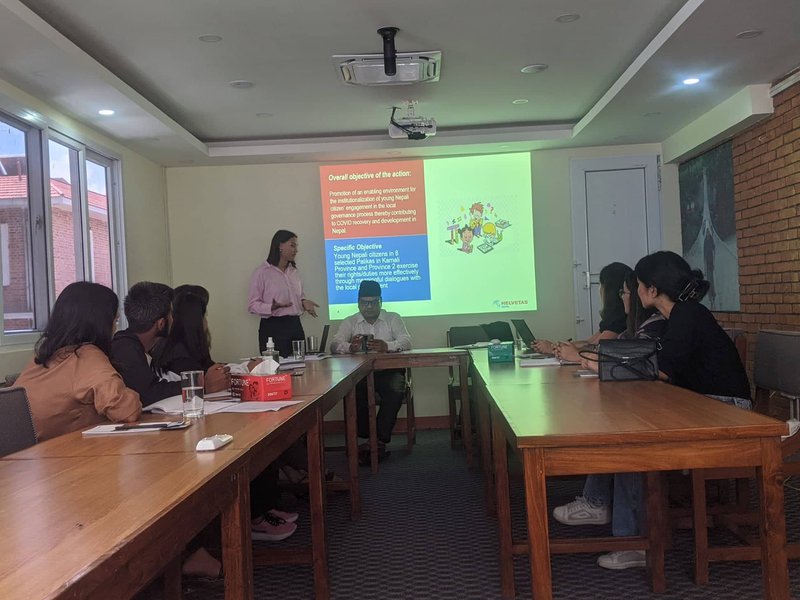
Manandhar said it was imperative to foster youth aspirations as well as utilize their vast energies in serving and advancing their local communities. He reflected upon his experience in the programs launched by Helvetas stressing the great impact the program had on youth in terms of defining their personalities. He concluded his speech engagement of youth in local governance empowering youth to ensure their active participation in sustaining local development.
Helvetas has been supporting various programs employment generation, safe migration and others in those Palikas. Although our program is related to governance, the youth also require employment and enterprise development.
Bipana Thapa, 22, holds the view that youth needs to give more training. More young needs to involve in climate change issue. As it will mostly affect the coming generation like me, climate change and green development need to be a priority of all youths. Even through the engagement at the local level, newly elected young leaders can make a change in the perception in the coming five years. We have to work to generate awareness of climate change and its implications in our life. As a youth, we are the future. We have to focus on green development. Sharing knowledge and so on. Local level governments can make changes in the lifestyle.
Namuna Giri, 22, an LLB student of Nepal Law Campus. A resident of Bakipur Municipality of west Rukum.The tendency to claim legal and constitutional rights by youth has been increasing. Unlike in the past, large numbers of youth are elected to run the local governments. People are very much aware of the situations. Youth are taking part in different activities. However, the participation of youth at the local level is very nominal compared to urban areas like Kathmandu.
“The old generation still dominates the political platform. There is discrimination between men and women. Compared to boys, girls are more discriminated against than boys. The level of awareness is very low regarding the rights. As long as people are aware of their rights, there are very low chances of their involvement.”
“Our topic is governance which is very much relevant. We have local government ward offices and provinces. We have to look at how much outreach extended from the local level is very important. We also talked about the need to provide internships at Palika level. It is a good idea. However, we have to see whether there is a legal fame work. We have a focus on issues.”
Society is not taking positively to those who join politics and there is a widely circulated perception that politics is a bad thing. However, a country’s power and the government are with politicians and political parties. Political parties are responsible to run the government, formulating the politicizes and implementing them. If politics is so important, shall we ignore politics and political parties? In the context of Nepal, we might have bitter experiences regarding politics. However, it is a foundation of society. In one survey conducted after the last parliamentary elections, politicians see politics as a profession that means making money. They have not seen politics as a medium of transformation of economic and social agenda. Our understanding of politics is poor. What should be the role of the youth to change this negative perception about politics?
Perception of youth in politics
Politics is important but it is a long-run goal. We need to generate awareness. For this, there should have certain role models. We need to focus on the program to provide skills for employment. Youth should be given skills to sustain their livelihood in thinking Rukum. Politicians should be given basic rights.
Politicians are responsible for destroying the ideals of politics. There is no room for politics in honest and neutral. Instead of going to politics, I find it is safe and comfortable to do a government job. There is instability in the country. Politics needs to change by engaging youth. However, it is not easy. We are unable to distinguish good and bad. There is discrimination among rural and urban youth. Large numbers of youth are excluded. There need to have accountability.
The solution will be to use a digital platform to launch political literacy and awareness. There are inclusion issues inclusion of women, marginal and so on. This year the number of women declined at the Palinkas level due to political alliances. Large numbers of youth are excluded. They don’t have an idea and they don’t have consciousness. There needs to form a political academy at the local level utilizing the current federal structures.
“There is a very little understanding about the politics among the youth in rural areas compared to the urban center in Kathmandu,” said Pooja Chaudhary. There need to encourage the youth in politics meaningfully. The number of youth in politics increases but most of them don’t know why are they there. Mostly contesting the elections and winning it means money. Youth must change this mindset to make politics as a vehicle of effective service delivery. We need to tell people that politics is the main center of development.
In Sudurpaschim, youth involvement in local government is viewed as critical to the continuance and development of local government process and strengthening of our democracy.”, stated Pragya Panta, “Youth involvement in local government is the avenue through which they are engaged and their investment, influence and commitment as leaders of the future are assured.”
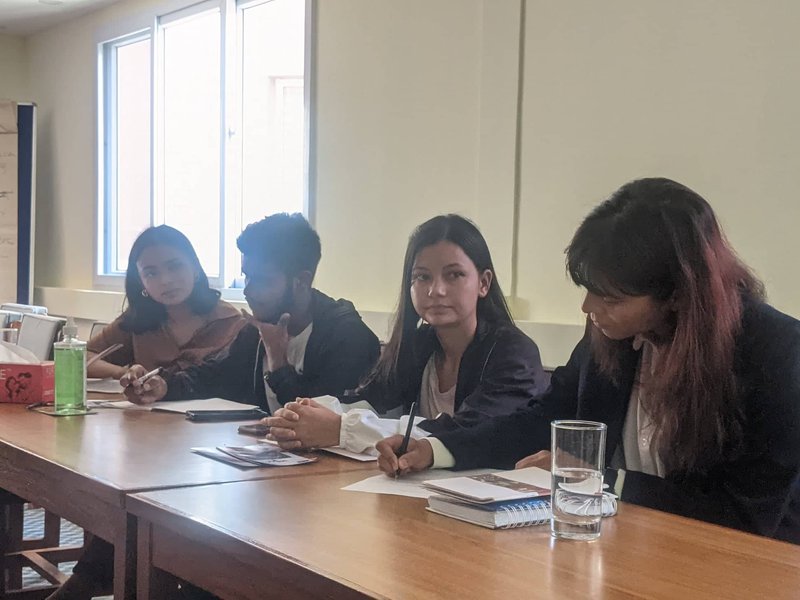
“Building relationships is key in making local government and youth engagement successful”, stated, “An effort needs to be made to design youth engagement mechanisms within local authorities. “There is as well] the need for massive sensitization of the youth on the function of local government [so as] to restore their interest in the work of the local government,” said Aagya Shrestha.
The roundtable was held at Helvetas Nepal Office. The interaction aimed to explore the reality of youth participation in the local governance process and develop recommendations that promote their representation, participation, and active role as agents for positive change in the local government sector.
Moreover, the groups discussed practical steps that aimed to broaden youth engagement in their local communities, with clear and straightforward roles and responsibilities for the key stakeholders in the sector.
“In Nepal, different agencies are working to ensure every adolescent and youth, in particular adolescent girls, is empowered to have access to sexual and reproductive health and reproductive rights, in all contexts. The specific needs of young people in the country, particularly adolescents, tend to be neglected as they transition from childhood to young adulthood. Moreover, discriminatory gender and socio-cultural norms existing across Nepal are inclined to under-value girls and do not recognize the positive contributions they can make to society and economic growth if provided with the same opportunities as boys. Significant and targeted investments in youth are required for Nepal to reap the benefit of the demographic dividend,” said Thapa.
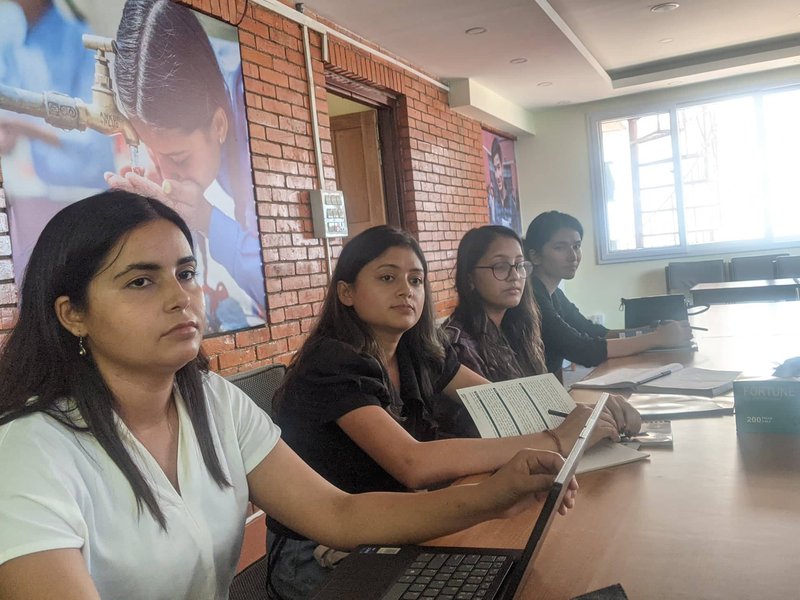
“Even though the government has brought many programs with the youth as a top priority, the youth have not been able to benefit due to the lack of effective implementation of those programs,” said Oli
August 12: International Youth Day (IYD)
August 12 was designated as International Youth Day by the UN General Assembly in 1999. It is an annual celebration of the role of young women and men as essential partners in promoting human rights and development.
The theme of International Youth Day 2022, “Intergenerational Solidarity: Creating a World for All Ages seeks to highlight the ways in which the engagement of young people and other people at the local, national and global levels.
The National Youth Council (NYC) is celebrating this year's International Youth Day for a week. The IYD is being celebrated on August 12 around the theme – "Transforming Food Systems: Youth Innovation for Human and Planetary Health."
Holding the first interaction meeting with members of the Youth Sounding Board and the views expressed by the members, Helvetas Nepal believes that the board will play a catalytic role to increase meaningful youth engagement at the local level governance process.

Keshab Poudel
Poudel is the editor of New Spotlight Magazine.
- HELVETAS NEPAL’S RIVERBED FARMING: Shift From Overseas To Local Farming
- Jul 26, 2024
- POLITICAL SCENARIO : K.P. Sharma Oli's Resurgence
- Jul 21, 2024
- UNDP/MinErgy: An Inventive Approach To Clean Brick Kiln
- Jul 19, 2024
- HELVETAS NEPAL: Nutrition Through Riverbed Farming
- Jul 18, 2024
- NOU Opens To All: Dr. Shilu Manandhar Bajracharya, Vice Chancellor
- Jul 15, 2024






